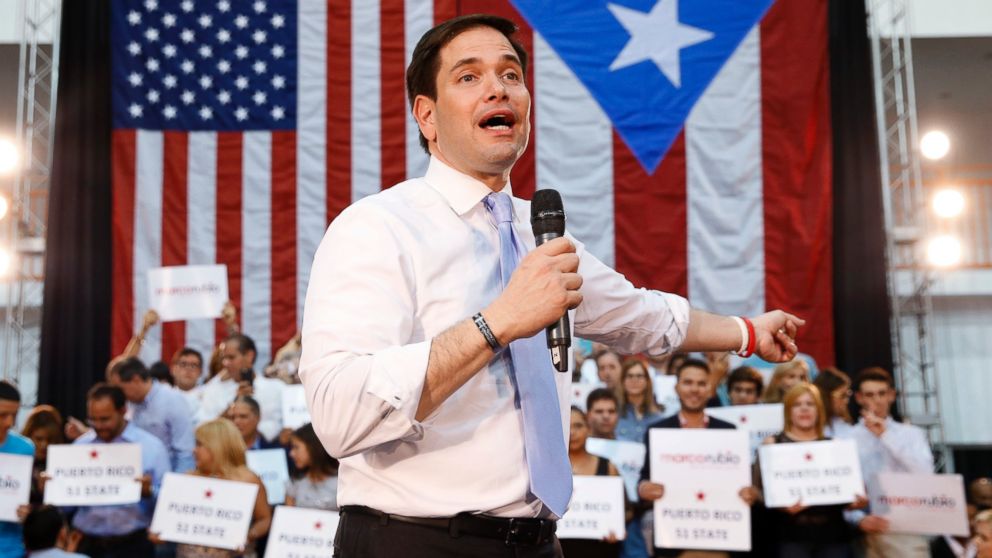For Marco Rubio, Is It Too Late to Be the Underdog?
— -- While teaching at Florida International University in 2011, Marco Rubio told his students there were two ways a candidate could be successful: He or she had to be a self-funder or the candidate needed to be “a sensation, a symbol larger than themselves.”
In his Senate race, Rubio was, indeed, a sensation -- the underdog in the race against Charlie Crist, then the sitting governor of Florida. This time around, Rubio hoped for a repeat of that. But as he struggles to generate enthusiasm for his campaign (Rubio has lost 18 of the first 20 primary contests), it appears the dynamics of 2016 aren’t on his side. So what's going on?
Out on the trail, Rubio often brings up his Senate campaign. He was down double digits when the race first began but later made an impressive comeback and went on to win in a landslide.
“The entire Republican establishment lined up against me,” Rubio often recalls, adding he’d been told to wait his turn and get in line.
“I didn’t know there was a line!” he often says.
Rubio makes the case that that’s what happened again this time around. The establishment’s pick was Jeb Bush -- Rubio was again told he should wait his turn. So Rubio built his campaign on the premise that he would again be an underdog, the David to Bush’s Goliath.
He played up the generational argument, positioning himself as the young, fresh face of the party. He would implicitly hit Bush -- and Hillary Clinton, by the same token -- for being a “leader from yesterday.”
“Too many of our leaders and our ideas are stuck in the 20th century,” Rubio said at his campaign announcement in April last year.
But Bush’s candidacy failed to take off -- and left Rubio without a real foil.
When Bush eventually left the race, Rubio found himself up against Donald Trump and Ted Cruz, both outsiders who had succeeded in establishing themselves as “sensations” -- Trump consistently gets thousands showing up to his rallies, while Cruz has his “grassroots army.”
Now, Rubio is again trying to position himself as an underdog.
“We're an underdog, there’s no doubt about it,” he recently told ABC’s Tom Llamas in Shelby Charter Township, Michigan. “And you know what? America is a nation of underdogs. I've always been an underdog.”
But in the year of the outsider, that argument doesn’t really hold up. Rubio now has more Congressional endorsements than any other Republican candidate, and it could be argued that this time around, it’s Trump -- and maybe even Cruz -- that are underdogs in their own right, given the extent to which they are being criticized by the establishment.
Rubio has now tweaked his message to sell himself as the one candidate able to unite the party -- the face of the anti-Trump movement. (It's common to see "Anybody But Trump" and "#NeverTrump" signs at Rubio rallies now.)
“In 2009, I was arguing that the person running as a Republican was not a Republican, that the person masquerading as a conservative was not a conservative,” he said in Jacksonville, Florida over the weekend.
"It’s funny how history repeats itself," he added.




